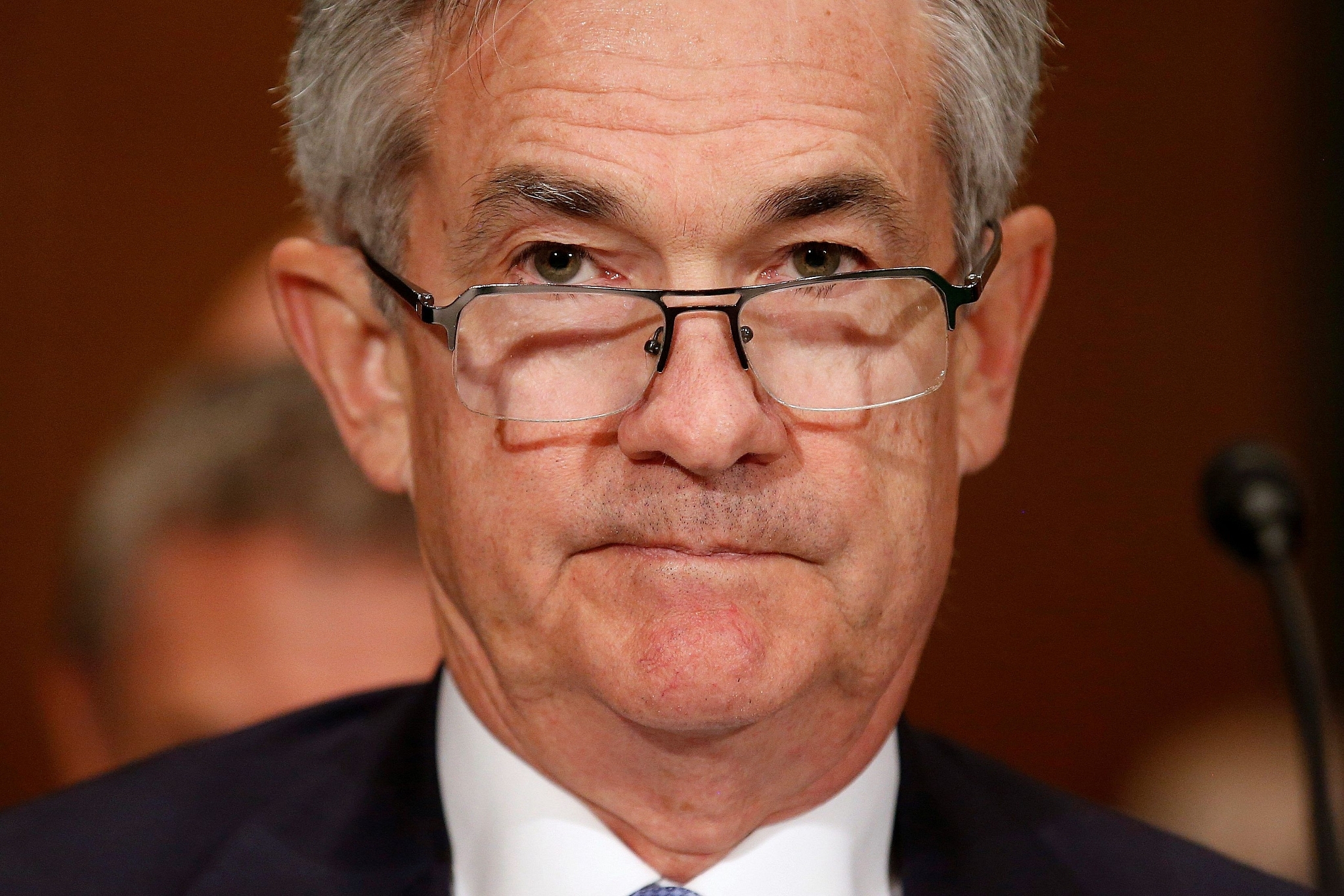Insta
U.S Central Bank Bans Officials, MPC Members From Owning Individual Stocks And Bonds, Places Restriction On Active Trading

Jerome H Powell (Joshua Roberts/ Getty Images)
The Federal Reserve, the central bank of U.S, has announced a wide-ranging ban on officials buying individual stocks and bonds and limits on other investment activities as well in response to controversy over dubious trading practices by top officials.
The new set of rules will prohibit the purchase of individual shares, restrict active trading, and increase the timeliness of reporting and public disclosure by Federal Reserve policymakers and senior staff. As a result of the new policies, senior Federal Reserve officials will be limited to purchasing diversified investment vehicles, like mutual funds.
The new rules will apply to both Reserve Bank and Board policymakers and senior staff and prohibit them from purchasing individual stocks, holding investments in individual bonds, holding investments in agency securities (directly or indirectly), or entering into derivatives
To help guard against even the appearance of any conflict of interest in the timing of investment decisions, policymakers and senior staff of central bank will be required to provide 45 days' advance notice for purchases and sales of securities, obtain prior approval for purchases and sales of securities, and hold investments for at least one year. Further, no purchases or sales will be allowed during periods of heightened financial market stress.
Reserve Bank presidents now will be required to publicly disclose financial transactions within 30 days, as Board Members and senior staff currently do.
The new rules come on the heels of disclosures that multiple Fed officials had been buying and selling stocks at a time when the central bank’s policies were designed to improve market functioning especially during Covid-19 pandemic.
On Sep 27, Robert Kaplan, head of the Dallas Fed and voting member of Federal Reserve’s monetary-policy committee, resigned after questions of propriety were raised over his trading activities involving millions of dollars’ worth of stocks in companies from Apple to Chevron.
Eric Rosengren, president of the Boston Fed, also resigned on the same day after it emerged that he had invested in trusts that held mortgage-backed securities at around the same time that the Fed was buying such assets.
"These tough new rules raise the bar high in order to assure the public we serve that all of our senior officials maintain a single-minded focus on the public mission of the Federal Reserve," said Federal Reserve Board Chair Jerome H. Powell.
Support Swarajya's 50 Ground Reports Project & Sponsor A Story
Every general election Swarajya does a 50 ground reports project.
Aimed only at serious readers and those who appreciate the nuances of political undercurrents, the project provides a sense of India's electoral landscape. As you know, these reports are produced after considerable investment of travel, time and effort on the ground.
This time too we've kicked off the project in style and have covered over 30 constituencies already. If you're someone who appreciates such work and have enjoyed our coverage please consider sponsoring a ground report for just Rs 2999 to Rs 19,999 - it goes a long way in helping us produce more quality reportage.
You can also back this project by becoming a subscriber for as little as Rs 999 - so do click on this links and choose a plan that suits you and back us.
Click below to contribute.
Latest